On January 20, 2018, over 15,000 men and women crowded the streets of downtown Nashville for the city’s second annual Women’s March. The march began at Public Square Park and ended at Bicentennial Mall with an empowering rally. Amongst the crowd were several Vanderbilt University students, including yours truly.
On a beautiful Saturday morning, a group of Vanderbilt Freshmen came together to attend the Women’s March 2.0 downtown. Initially, the group started with two girls and slowly grew. We came together to create signs and venture out of the infamous “vanderbubble”. As young women, many of us felt the urge to stand up for women’s rights and have our voices heard. With such a strong sense of community on the Vanderbilt Commons, all of us were able to join together and empower one another.
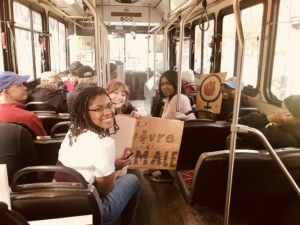
Our day began with a short bus ride to Public Square Park. As we loaded the bus, several other activists on the bus cheered for us. They were so proud to see young students fighting for a cause.

When we arrived at the march, thousands of men and women lined the streets. Everyone gathered to hear speakers perform poetry, music, and speeches that empowered the community.

I saw signs supporting almost every cause including the impeachment of President Donald Trump, immigrant rights, LGBTQ rights, civil rights, disability rights, and health care access. Many people carried signs with statements like “women’s rights are human rights” and “anything you can do, I can do bleeding”.
So, why do we march?
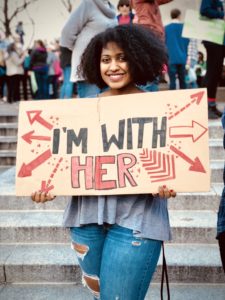
“Maya Angelou once said, ‘Each time a woman stands up for herself, without knowing it possibly, without claiming it, she stands up for all women.’ I stand up for all women’s rights and I march for all oppressed women who cannot use their voice.” – Amira Vivrette
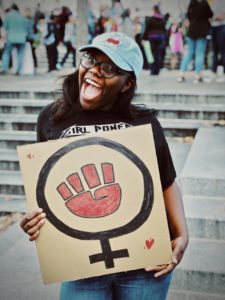
“The march was an amazing experience. I am glad that I was able to share that experience with so many individuals of different ages and backgrounds. It was a beautiful showcase of our intersectionality and our diversity that I was happy to embrace.” – Karrie Raymond
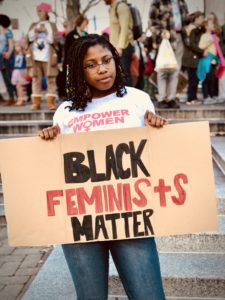
“I created my sign because the feminist movement has always been geared towards white feminists. During the suffrage movement, Susan B. Anthony was racist. From then on, the movement has been about white women. The issues and problems that minority women and white women face are vastly different. I believe it is important to recognize the intersectionality that should lie within the feminist movement.” – Nnenna Nwaezeapu
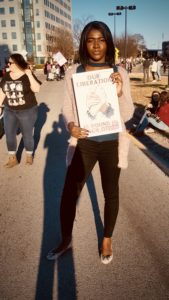
“It was an opportunity for me to take a stance on something I strongly believe in and be surrounded by like-minded women.” – Maeva Makendi